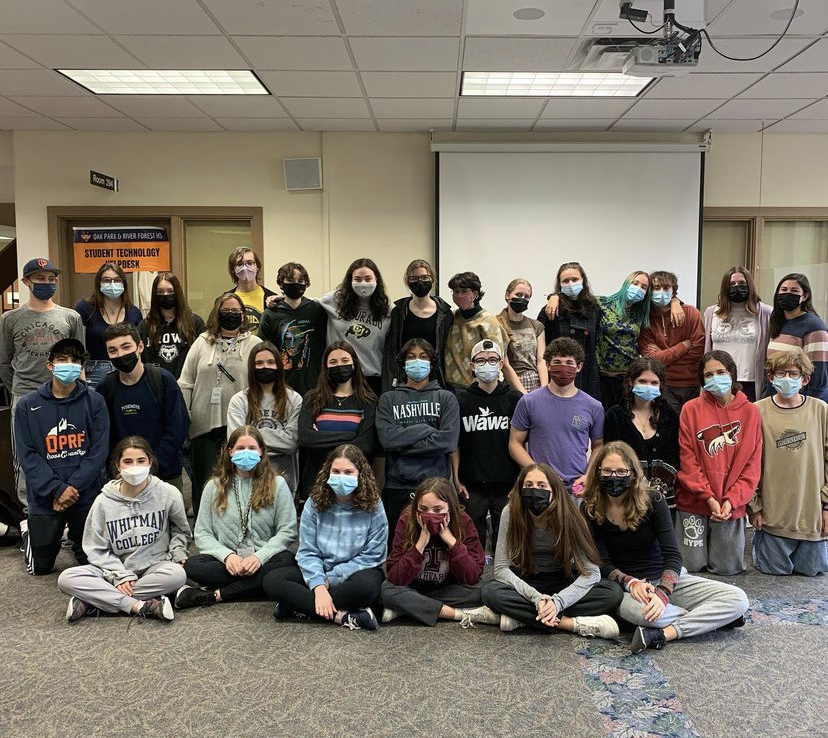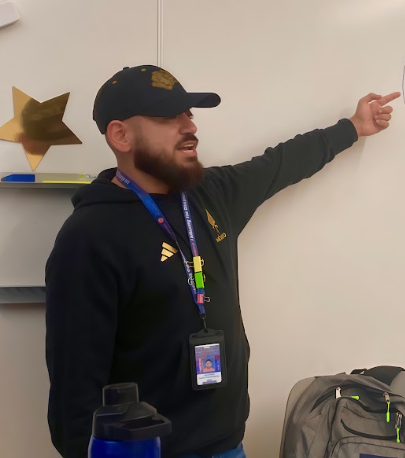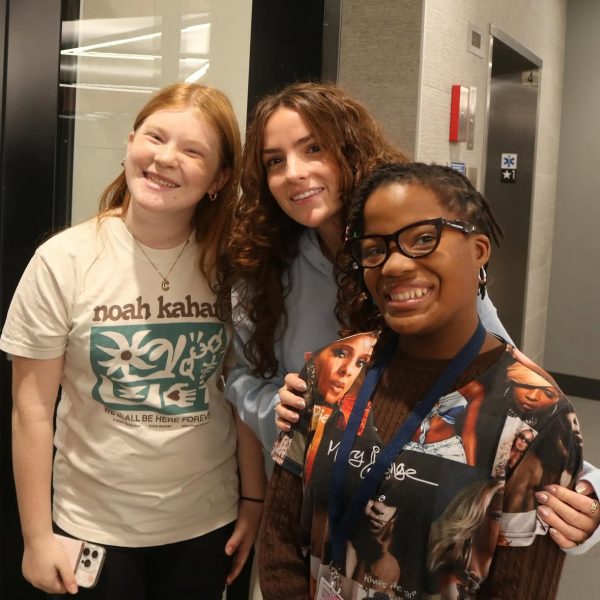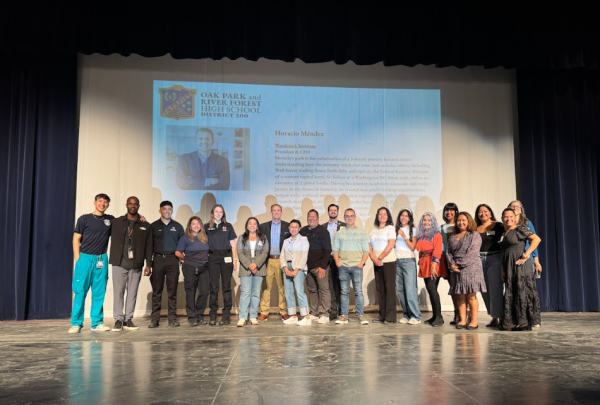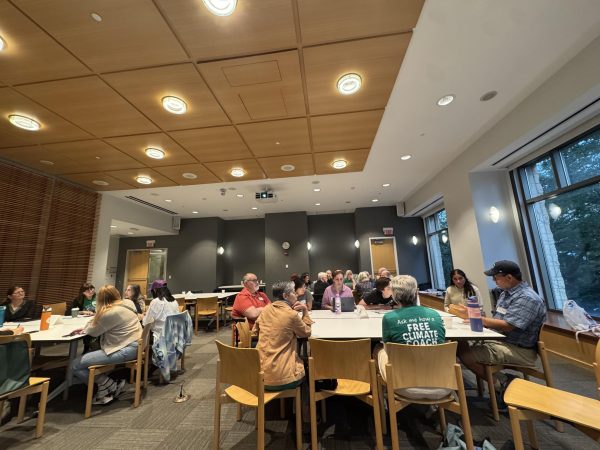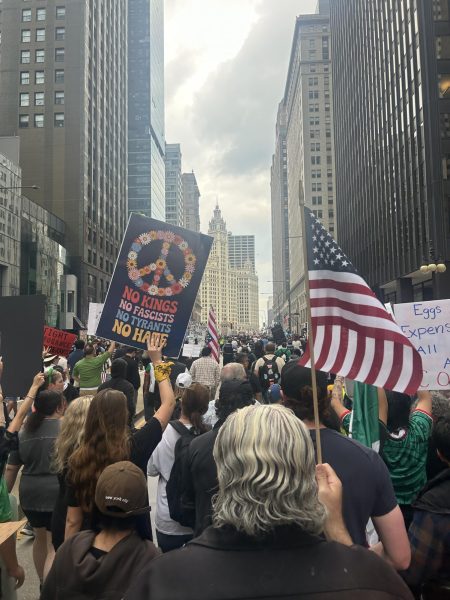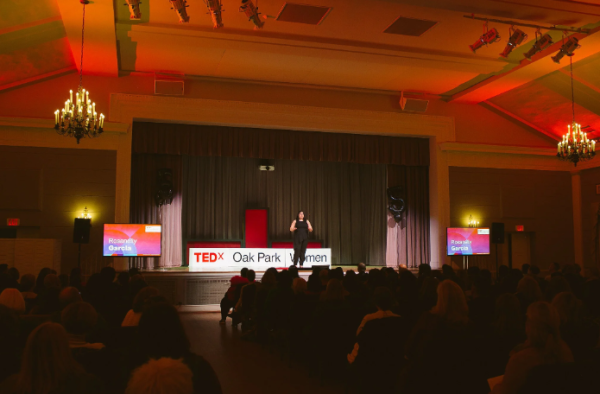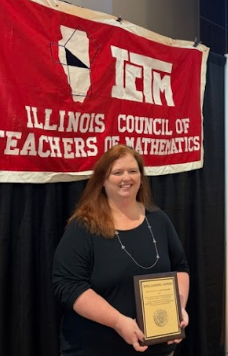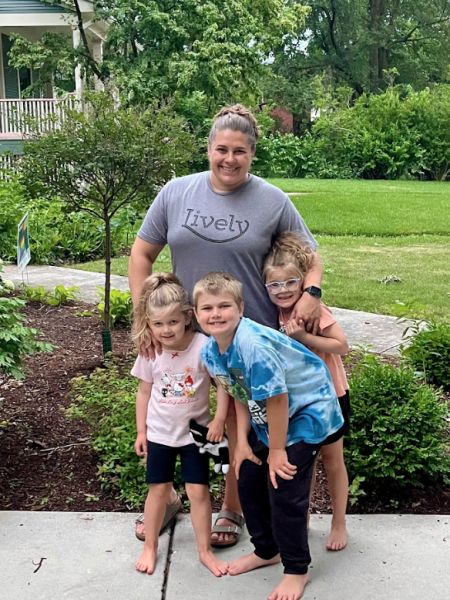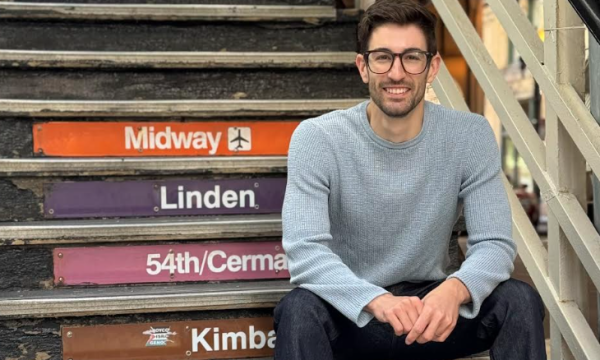OPRF to make Jewish holidays non-attendance in new schedule
In September 2020, then-junior Maddy Niewoehner’s math test was abruptly rescheduled to the day after Rosh Hashanah. Frustrated at her teacher’s apparent inattentiveness, Niewoehner decided to send an email, signed by many other Jews, to “all the administrators.” She then realized that “this would be a good Civics project.”
Maureen Miller, the new teacher sponsor of JSC, explains that Rosh Hashanah, the Jewish New Year, is a “reflective” day for Jews. “That’s the time when you spend time with your family, you are in the synagogue or temple. And it takes the whole day.” On Yom Kippur, the Jewish day of atonement, many Jews fast all day. “You’re supposed to be not doing anything if you are observing the holiday,” Miller says.
Niewoehner, now a senior, took up the cause as her Civics project and reached out to fellow JSC member Eva Spangler (also a senior). They made a slideshow to show to administrators. “It had what the holidays were, how people typically celebrate them, why we think they should be a day off of school,” Spangler said. They presented alternatives such as changing makeup work policies and educating students about the holidays if making them non-attendance days was not possible. “That meeting was really helpful because it got the ball rolling: it was basically the start of this whole project,” Spangler said.
They “later realized that the administrators weren’t really the ones who decided, the school board votes on the calendar,” Spangler said.
However, “if the administrators say something, the school board most definitely will vote on it,” Niewoehner said. While this was a helpful realization, “when it came around for them to vote,” they had not discussed the issue with the Board enough for action to be taken that year, she said.
After this, JSC members Zoe Klein, Ania Sacks, and Tim Mellman joined the cause, and the group wrote another letter to the board. Niewoehner said the board responded by saying they “need to address this for further years” and that they would talk to local Jewish rabbis and leaders, though it was too late to effect the change immediately. The school also conducted a ThoughtExchange in September and October of this year, in which many students and parents voiced their problems with the current schedule holding classes on Rosh Hashanah and Yom Kippur.
Meanwhile, Niewoehner and Spangler encouraged other Jews to submit comments at board meetings, using their platform as JSC leaders. “We did not let them forget,” Spangler said.
Advocates had the help and advice of two leaders from Jewish Community Center (JCC) in their advocacy, Niewoehner and Spangler said.
The board approved the change on November 18.
Niewoehner and Spangler say that the consequences of these holidays being school days went beyond being out of the building for a couple days. “It’s the beginning of the school year, you’re getting to know all these teachers, you don’t want to give the wrong impression by missing a lot of school days, you don’t want to get behind,” Spangler said. “It made it hard for me to focus on the holiday and enjoy it when I was just thinking about all the homework and classwork that I would have to make up.”
Niewoehner says she felt “pulled” by the conflict. “Do I want an education or do I want my culture and my religion? It’s hard to feel welcomed in your own school because you have to miss (class), and they aren’t really taking it in consideration.”
Spangler describes the board’s decision and the process to get there as “bittersweet.” “I’m so glad (the change has) happened and I’m so grateful that we’ve been able to make it happen, but the process was incredibly frustrating (and) time-consuming,” she said. “I wish that OPRF would not only say that they want equity but be more willing and open to suggestions to actually make the school more equitable.”
“On top of that, we won’t be able to experience” the non-attendance days, Niewoehner added. “Every single person that fought for this is graduating.”
Niewoehner says she is nonetheless “grateful” that future Jewish kids will be able to have these days off and feel “welcomed,” something she has not always felt welcome at school, “especially with all the anti-Semitic attacks that were happening our freshman year.”
Niewoehner and Spangler said they anticipate that Oak Park District 97 will follow suit and change their calendar as well.
Spangler says she hopes that “tangible changes” such as this taking place at OPRF “will impact the culture of the school.”

